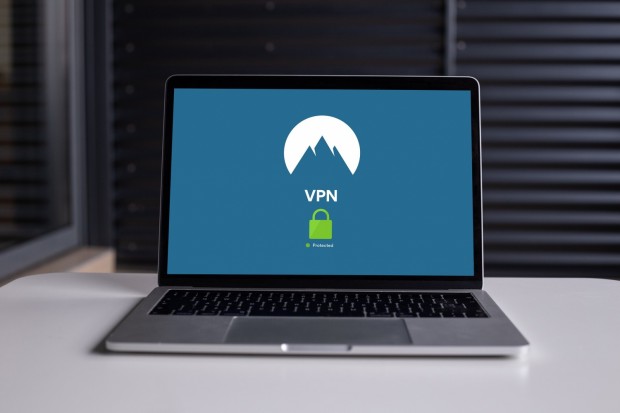
VPNs are a fantastic tool for your online safety, especially in this modern age of the internet. Whether you're out and about hopping between different public wifi networks or at home seeking to protect your search history from potential eavesdropping, having a VPN on your system can massively increase the security of your internet browsing experience. But what else can VPNs do, and why are they so important? Read on to find out.
Securing Your Online Experience
As mentioned above, the core purpose of a VPN is to protect your internet browsing experience and to secure your data. When going online, especially through public wifi networks, it can be very easy for someone else to find your IP and track the data that is incoming and outgoing from your system. Depending on the skill of the hacker, they could even determine your login credentials for anything you access, from your social media to your online bank account. A VPN encrypts your data, sequestering it away from any prying eyes, both potential eavesdroppers as well as your internet provider.
Your ISP isn't the only thing that VPNs can hide your data from. Many apps that you use daily collect that data and what they do with it is either unknown or frowned upon. If you want to keep your data to yourself, a VPN can protect you from the applications that look to collect as much of your data as they can.
What About The Cloud?
Despite how many people use cloud based technology on a daily basis, few realise that a cloud based VPN is not only possible but highly recommended. But what is a cloud VPN? Well, as the name suggests, it's a type of VPN technology that is specifically designed for the cloud, though it goes deeper than that. Though the cloud is a fantastic system for small and large businesses alike, the security built into the cloud isn't strong enough. Moreover, traditional VPNs that companies would use to access physical servers simply aren't designed to work with the cloud, so a new type of VPN had to be designed.
Cloud VPNs have been coded with a different approach to the classic secure peer-to-peer communication method that traditional VPNs work with. Whilst the classic VPNs require some of the infrastructure of the VPN to be on the user's end, a cloud VPN is hosted on the cloud itself, allowing for global accessibility through a safe and secure network that is simply part of the company's infrastructure. This allows cloud storage to have what ends up often being a more secure connection than a traditional VPN offers.
Cloud VPNs also mean that remote working is a lot more safe for companies and their employees. Today, more and more people are working remotely, whether from home or simply away from the central office. Cloud VPNs being hosted as part of the company's cloud infrastructure means that an employee can connect from anywhere and receive the same kind of secure transmission regardless of where they are, or even what device they are using to connect. This technology is allowing companies to be more spread out whilst still maintaining full efficiency.
VPNs are allowing your internet experience to be safer than ever before, keeping your data encrypted, hidden and secure without slowing down your access at all. It's important to always stay safe whilst browsing and to make sure that you take steps to secure your account details.
* This is a contributed article and this content does not necessarily represent the views of mobilenapps.com
most read
more stories from News
-
Google-Backed Glance Launches Pilot of Android Lockscreen Platform in US
Check out the latest from Glance! They're piloting their Android Lockscreen Platform in the US. Don't miss it!
ernest hamilton -
X Plans Smart TV App, Promising Immersive Entertainment Experience
Exciting news! X plans to launch a Smart TV app for an immersive entertainment experience. Stay tuned!
ernest hamilton -
T-Mobile Introduces New 5G Internet Plans for Enhanced Home and Travel Connectivity
T-Mobile unveils new 5G internet plans, promising enhanced home and travel connectivity for customers seeking high-speed internet on the go.
ernest hamilton -
Huawei Aims for Global Expansion of HarmonyOS, Rivaling Android and iOS
Huawei sets sights on global expansion with HarmonyOS, aiming to rival Android and iOS in the competitive mobile operating system market.
ernest hamilton -
Apple Releases Third Betas for iOS 17.5 and iPadOS 17.5, Introducing App Ecosystem Changes and New Features
Stay ahead with the latest updates! Apple rolls out third betas for iOS 17.5 and iPadOS 17.5, bringing exciting app ecosystem changes and new features.
ernest hamilton -
Billie Eilish Takes the Stage at 'Fortnite Festival' This Week
Billie Eilish fans, get ready! The iconic singer will be performing live at the Fortnite Festival this week. Don't miss out!
ernest hamilton -
The MIAD 01: Audiophile Brand Moondrop Teases Its First Smartphone
Moondrop, known for audiophile gear, teases its inaugural smartphone, the MIAD 01, promising a unique blend of audio excellence and mobile technology.
ernest hamilton -
Android 15 Could Simplify Notification Channels, Hide Unused Ones
Android 15 aims to streamline notification channels by hiding unused ones, enhancing user experience and decluttering notification settings.
ernest hamilton













